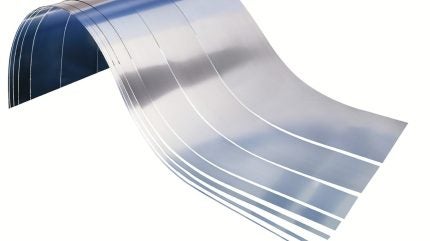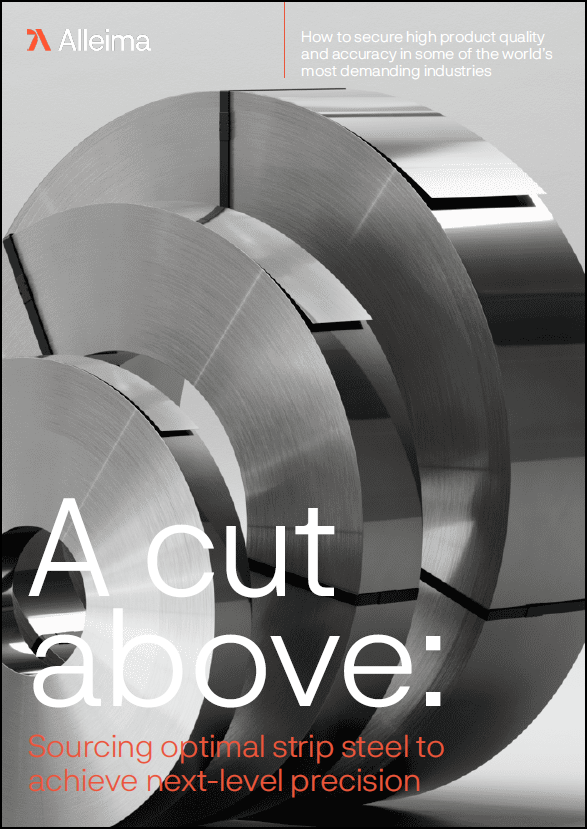
Spring steel is often the material of choice for high-performance engineering applications, and for good reason. Renowned for its exceptional strength, flexibility, and durability, spring steel is ideal for various demanding applications, from automotive suspension systems and aerospace components to industrial machinery and sophisticated medical devices.
Central to spring steel’s superior performance is its highly elastic nature, which means it has excellent fatigue resistance. Engineered specifically to return to its original shape after deformation, spring steel’s resilience makes it ideal for applications subjected to continuous mechanical energy storage and release, such as coil springs and suspension components in the automotive sector or critical springs within industrial machinery.
Enhancing performance with precision engineering
Manufacturing spring steel is a meticulous process involving precision engineering and specific heat treatments, requiring careful control to ensure that the steel maintains its flexibility even under intense operational stress. To enhance hardness and tensile strength, high-carbon steel variants are often used.
One company that has set a new standard in the production of spring steel is Alleima, with its fully integrated production chain spanning from research and development through melting, hot working, and ultimately to the finished cold-rolled product. This comprehensive oversight guarantees a steel of exceptional purity and precision, offering customers tightly controlled mechanical properties and narrow composition tolerances, crucial for optimal fatigue resistance.
Alleima’s advanced facilities extensively evaluate fatigue resistance through rigorous testing. The company’s ability to produce precision strip material in relatively small quantities with extremely tight dimensional tolerances and customisable properties, places them at the forefront of the spring steel market. Specialised treatments during production, such as tempering or aging processes after customer forming, are recommended to optimise the steel’s strength and extend its fatigue life. Additional processes like tumbling are also suggested for applications demanding particularly high fatigue properties.
Forming processes are critical and should always be adapted to the material’s mechanical properties. Generally, the harder the material, the more challenging it is to form. Alleima addresses this by precisely tailoring tensile strengths to customer specifications, allowing users to achieve an optimal balance between excellent formability and high-strength performance. Alleima’s speciality alloys, such as X-750 and Nanoflex, can withstand extreme temperatures and corrosive environments while maintaining their mechanical integrity, opening possibilities for use in challenging sectors such as aerospace or chemical processing industries.
Looking ahead: sustainability in spring steel manufacturing
The European steel industry continues to evolve with a strong emphasis on sustainability and technological innovation, including environmental initiatives such as the EU’s Green Deal. In 2023, the European steel market was valued at $212.3 billion, and despite a slight contraction in volume that year due to energy costs and regulatory pressure, it is forecast to grow to $241.7 billion by 2028. Production volume is expected to rise from 233.9 million tonnes in 2023 to 270.6 million tonnes by 2028, driven in part by rising demand in automotive manufacturing and public infrastructure initiatives.
This shift comes alongside tighter environmental regulations, such as the EU Emissions Trading System and the Carbon Border Adjustment Mechanism, both of which are reshaping how steel is made and used. Many manufacturers are being compelled to transition to hydrogen-based processes and invest in electric arc furnace technology to meet decarbonisation targets, putting sustainability at the core of competitiveness in the sector.
Alleima sets the benchmarks when it comes to sustainability, with a commitment to environmentally friendly production, from utilising electric arc furnaces to sourcing primarily recycled steel. In recognition of its sustainability efforts, Alleima was awarded the EcoVadis Gold Medal in August 2024, placing the company in the top 5% of more than 130,000 companies assessed globally. Notably, Alleima ranks in the top 1% for sustainable procurement within its industry.
Alleima’s sustainability strategy includes ambitious targets: achieving net-zero carbon emissions by 2050, with interim goals of a 50% reduction in greenhouse gas emissions and maintaining 83% recycled steel content in finished products by 2030. The company also operates its production facilities on fossil-free electricity, further minimising its environmental impact. Additionally, Alleima has implemented Life Cycle Assessment (LCA) methodologies to provide transparent and verified data on the carbon footprint of its products, empowering customers in their own sustainability journeys.
With Alleima pushing the envelope in quality assurance, customisability, and sustainability, spring steel remains indispensable, reliably powering industries into the future.
To find out more, download the whitepaper below.



